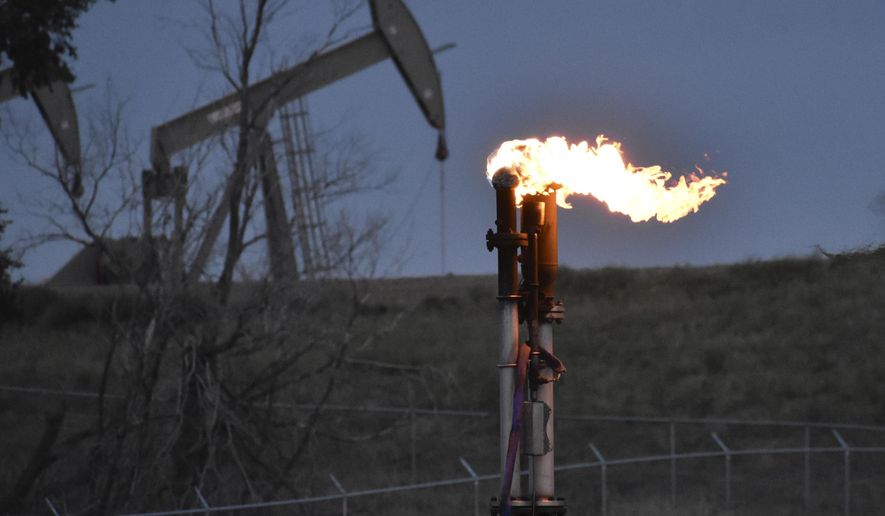WASHINGTON (AP) — The Biden administration is ramping up efforts to reduce methane emissions, targeting the oil and gas industry for its role in global warming even as President Biden has pressed energy producers for more oil drilling to lower prices at the gasoline pump.
Biden was set to announce on Friday a supplemental rule cracking down on emissions of methane - a potent greenhouse gas that contributes significantly to global warming and packs a stronger short-term punch than even carbon dioxide - as he attends a global climate conference in Egypt.
The new rule by the Environmental Protection Agency follows up on a methane rule Biden announced last year at a United Nations climate summit in Scotland. The 2021 rule targets emissions from existing oil and gas wells nationwide, rather than focusing only on new wells as previous EPA regulations have done.
The new rule goes a step further and takes aim at all drilling sites, including smaller wells that emit less than 3 tons (2.7 metric tonnes) of methane per year. Small wells currently are subject to an initial inspection but are rarely checked again for leaks.
The proposal also requires operators to respond to credible third-party reports of high-volume methane leaks.
Oil and gas production is the nation’s largest industrial source of methane, the primary component of natural gas, and is a key target for the Biden administration as it seeks to combat climate change. The United States is among more than 100 countries that have pledged to cut methane emissions by 30% by 2030 from 2020 levels.
“We must lead by example when it comes to tackling methane pollution - one of the biggest drivers of climate change,’’ said EPA Administrator Michael Regan, who also is in Egypt for the climate talks. The new, stronger standards “will enable innovative new technology to flourish while protecting people and the planet,” he said.
The supplemental rule comes as Biden has accused oil companies of “war profiteering” and raised the possibility of imposing a windfall tax on energy companies if they don’t boost domestic production.
Biden has repeatedly criticized major oil companies for making record-setting profits in the wake of Russia’s war in Ukraine while refusing to help lower prices at the pump for the American people. The Democratic president suggested last week that he will look to Congress to impose tax penalties on oil companies if they don’t invest some of their record-breaking profits to lower costs for American consumers.
Besides the EPA rule, the new climate and health law approved by Congress in August includes a methane emissions reduction program that would impose a fee on energy producers that exceed a certain level of methane emissions. The fee, set to rise to $1,500 per metric ton of methane, marks the first time the federal government has directly imposed a fee, or tax, on greenhouse gas emissions.
The law allows exemptions for companies that comply with the EPA’s standards or fall below a certain emissions threshold. It also includes $1.5 billion in grants and other spending to help operators and local communities improve monitoring and data collection for methane emissions, with the goal of finding and repairing natural gas leaks.
Multiple studies have found that smaller wells produce just 6% of the nation’s oil and gas but account for up to half the methane emissions from well sites.
“We can’t leave half of the problem on the table and expect to get the reductions that we need to get and protect local communities from pollution,” said Jon Goldstein, senior director of regulatory affairs for oil and gas at the Environmental Defense Fund.
The oil industry has generally welcomed direct federal regulation of methane emissions, preferring a single national standard to a hodgepodge of state rules.
Even so, oil and gas companies have asked the EPA to exempt hundreds of thousands of the nation’s smallest wells from the upcoming methane rules.




Please read our comment policy before commenting.